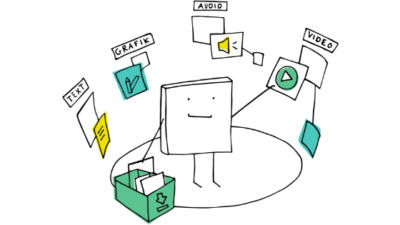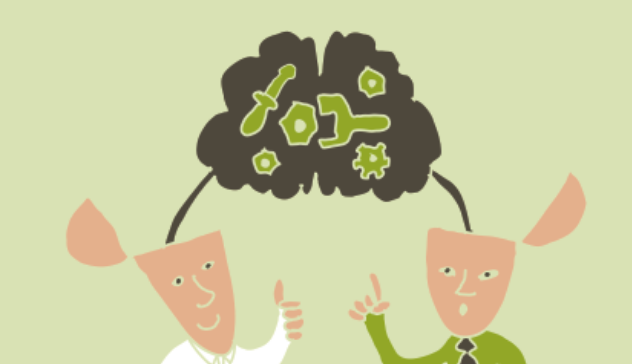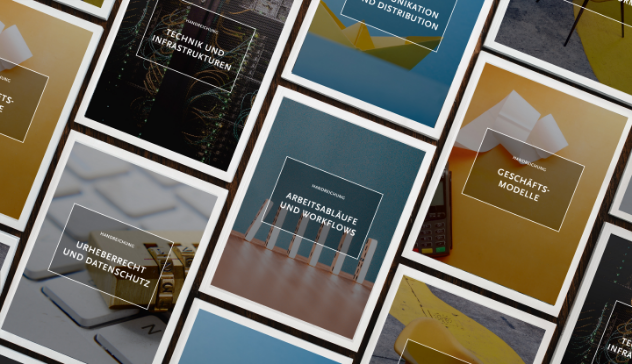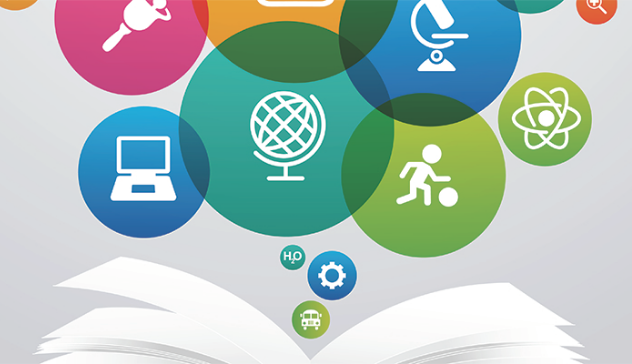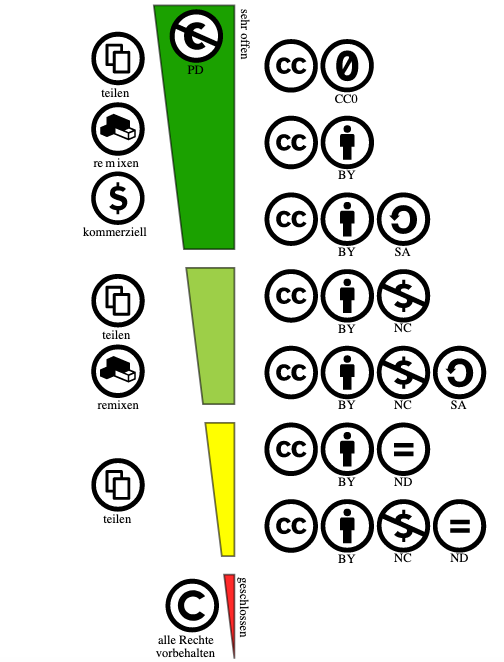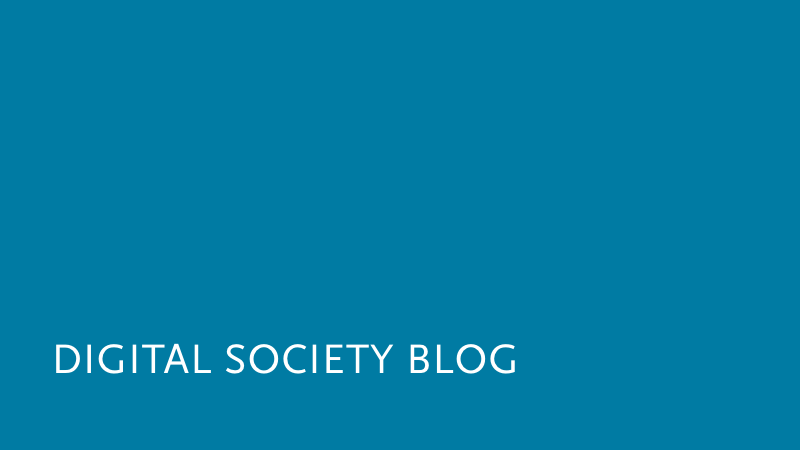
Open Science Resources & Tools
Explore the practical open science resources and tools offered by the Alexander von Humboldt Institute for Internet and Society (HIIG) to support open science projects. Our aim is to facilitate collaboration and provide research-based recommendations and best practices for conducting research in alignment with open science principles.
The Open Access representative of the HIIG, Marcel Wrzesinski, is always available for questions on open science. In addition, there are regular workshops on open science and open access at the HIIG.
CONTACT
OPEN SCIENCE AT HIIG
Explore HIIG’s approach to providing a unique perspective on open science.
What is the importance of Open Access research?
There are practical and political reasons for publishing Open Access (OA). From a practical point of view, the free availability of one's own publications leads to a broader reception; and the more widely one's own work is received, the greater the expected impact. For this reason alone, it is advisable to place at least a proportion of one's own publications in Open Access journals and book series.
However, the political reasons set out in many of the founding documents (e.g. the Budapest Declaration of 2002) of the OA movement seem to be more important: Making scientific results available for free re-use is a self-commitment within the framework of good scientific practice; making this re-use free of charge for readers* is an imperative of fairness. Both points are all the more important because electronic access to and availability of scientific literature is the new publishing standard.
What are the different Open Access publication options?
Do Open Access publications have lower quality?
Which licences are recommended in terms of Open Access research?
How do I find a suitable OA journal or OA publisher?
What should I keep in mind when signing publishing contracts or negotiating with publishers?
How can I finance my Open Access publications?
Where can I safely store and archive my publications after publication (second publication)?
How can I increase the impact and visibility of my Open Access research?
How can I make my Open Access research data available to the public?
We want to publish our results in top publications. Does OA still work then? How?
What are the requirements for Open Access publishing from research funders?
Most research funding bodies, especially public ones, have recognized the relevance of OA publishing and have implemented corresponding mandatory or mandatory provisions in their funding regulations. Important public research funders in Germany, such as the German Research Foundation (DFG) and the Federal Ministry of Education and Research (BMBF), do not have an obligation to publish OA, but do have a clear requirement to publish project-related research results in OA. Both the DFG and the BMBF offer flat-rate project payments to fund OA publications. In addition, both the European Research Council and the European Commission (in the context of Horizon 2020) emphasize the importance of making publications and research data available in open access.
In a broader, international context, overarching initiatives have emerged to develop contemporary strategies for OA transformation for research funding as a key stakeholder. An example of this is the cOAlition S and its guidelines: in the so-called Plan S, 10 principles are set out, supplemented by detailed implementation guidelines. These principles make, for example, free licenses, fair publication fees and a 100 percent OA publication quota mandatory for participating institutions.
What are the requirements for publishing scientific research from research funders and professional societies?
How do I finance Open Access publication costs?
Open higher education
On our blog, we are explore and analyse open science concepts, ideas and policy making within the European context and beyond.
The blog journal elephantinthelab.org spots problems in science
You have probably heard the phrase “ the elephant in the room” to say that there is a problem that everyone knows, but no one talks about. As of July…
DeepGreen: Open-Access-Transformation
Supported by the German Research Foundation (DFG), the DeepGreen project aims to transfer academic publications which can be made freely accessible into open access. This process will be automated using…
Crowd Science
Online platforms offer a variety of opportunities for volunteers to engage in the process of knowledge generation. How are Crowd Science projects brought into being and how do they work? An insight….
Open Access or: Recapturing autonomy
With regard to open access, the academic world is once again on the verge of reverting to a dependence on large publishers. But it doesn’t have to be this way,…
Open Science in the Land of Ideas
We are very happy that our Open Science Project got the “Deutschland – Land der Ideen” award We made a short video to celebrate. Wir freuen uns, dass unser Projekt Opening Science* im Wettbewerb…
Looking at Open Science through the Prism of a Social Dilemma
The essence of open science is to make the whole research process transparent and accessible. The idea of open science can be traced back to the days of the emergence…
FAQs zu Open Access der DFG
https://www.dfg.de/foerderung/faq/open_access_faq/index.html
Open-Access-Strategie des BMBF
https://www.bmbf.de/upload_filestore/pub/Open_Access_in_Deutschland.pdf
Allgemeine Informationen des deutschsprachigen Informationsportals zu Open Access
https://open-access.net/informationen-fuer-verschiedene-zielgruppen
Informationsseite des HIIG zum Thema Open Science
https://www.hiig.de/open-science/
Infoseite des Internet Policy Review zu Open access
https://policyreview.info/openaccess
Open Education and Software Association e.V.
https://oesa-ev.org/en/basic-concepts
Hamburg Open Online University
https://www.hoou.de
Digitale Lehre am KIT
https://www.bibliothek.kit.edu/digitale-lehre.php
OER Repositorien
https://open-educational-resources.de/wie-und-wo-finde-ich-oer-repositorien
Bildungsserver Berlin Brandenburg
https://bildungsserver.berlin-brandenburg.de/oer
UNESCO Recommendations on Open Science
https://www.unesco.org/en/open-science
UNESEO Recommendation on Open Educational Resources (OER)
https://www.unesco.org/en/legal-affairs/recommendation-open-educational-resources-oer
UNESEO Understanding the Impact of OER: Achievements and Challenges Publication
https://iite.unesco.org/publications/understanding-the-impact-of-oer-achievements-and-challenges
Open Science Framework
https://osf.io
LMU Open Science Center Resources
https://www.osc.uni-muenchen.de/toolbox/resources_for_teaching/index.html
Reproducibility Network Resources
https://reproducibilitynetwork.de/resources
